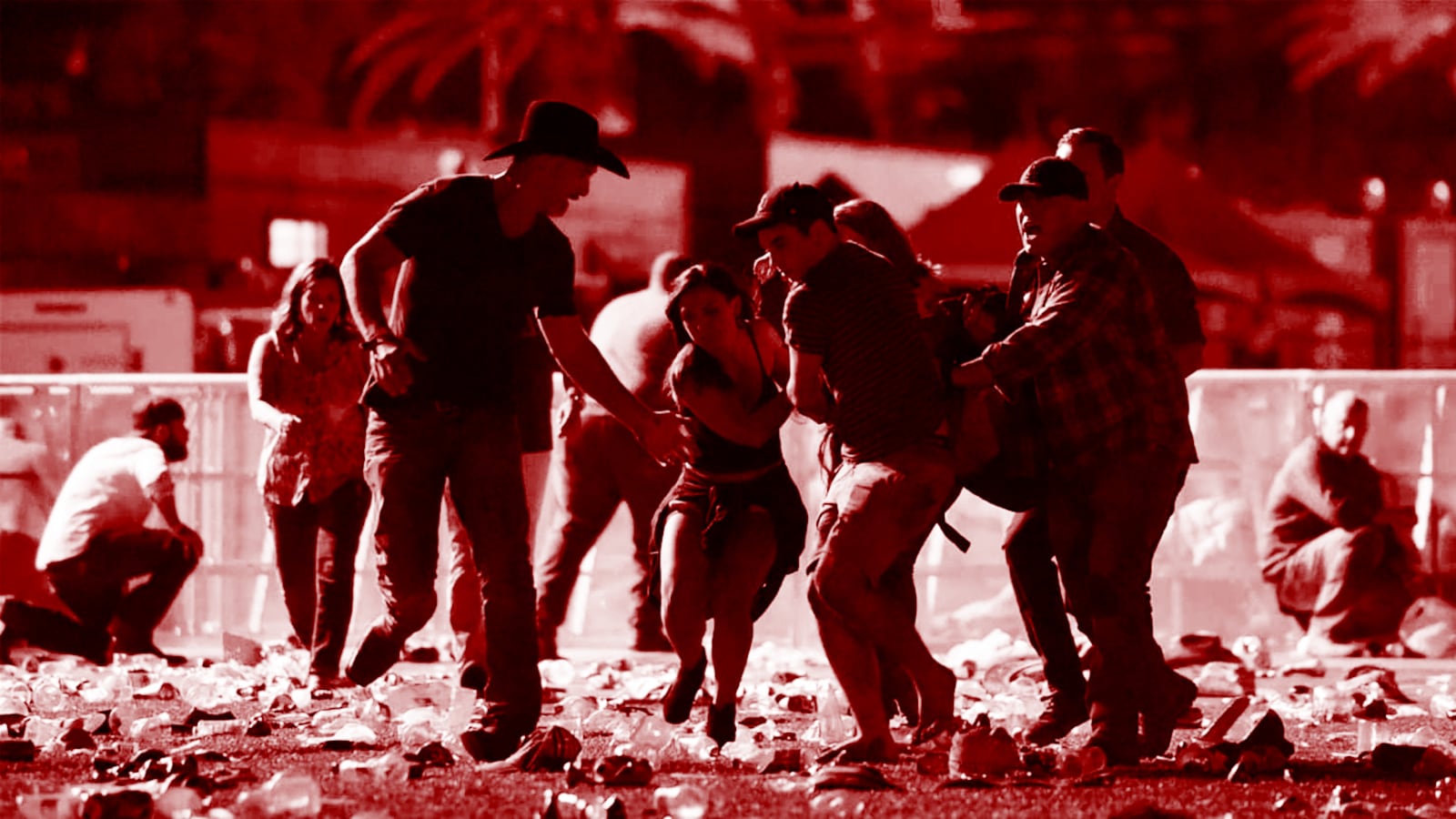I was dispatched to Afghanistan as an intelligence officer in 2010. I did not return home proud of my service, or altogether sure why I had carried around weapons in a remote country where they could be, and sometimes were, unleashed without foresight, accountability, or deadline. My time in country was defined by a growing awareness not only of the aimlessness of the military campaign, but also of its venality and grave injustice, attributes I reluctantly began to identify with the war on terror and American foreign policy as a whole.
After the Las Vegas massacre, the Democratic mayor of South Bend, Indiana, Pete Buttigieg, wrote: “I did not carry an assault weapon around a foreign country so I could come home and see them used to massacre my countrymen.” Buttigieg served seven months in Afghanistan as a staff officer in an intelligence unit targeting the connection between the narcotics trade and the financing of enemy fighters. Neither the counterinsurgency nor the drug war seems to have gone very well since his deployment in 2014, but this did not stop Buttigieg, a rising star in the party, from positioning his service as the just and necessary norm.
This has become a liberal trope of late. After it was discovered that an AR15-style rifle was used to slaughter 50 people at Orlando’s Pulse nightclub in June 2016—the deadliest mass shooting in modern U.S. history until this week—Hillary Clinton declared: “Weapons of war have no place on our streets.” The unspoken extension was that such weapons do belong on the streets of the dozens of countries we have waged war in during the last half century. Since I was born in the early 1980s, no government has invaded and occupied more nations; bombed more cities, villages, or countrysides; overturned more foreign leaders; armed, trained, assisted, and funded more oppressive regimes and terrorists; or caused more overall regional ruin than the United States of America.
For the first six months of my tour I was rocked by many an explosion and experienced the occasional skirmish, one time on foot. I stood by as young men, doped up on adrenaline, rage, and righteousness, fired rounds of ungodly size and rapidity into a great populated beyond. Many had lost friends in the country; others were simply conditioned from childhood to “get some!”—a common and disturbing Marine phrase. The latter group meshed well with the contractors who convoyed with me from one kill zone to the next, boasting about their six-figure compensation packages (a mere pittance compared to the millions being raked in by their bosses back in Chevy Chase and Fairfax County).
Few winced when, on our way to chow, we passed blindfolded peasant boys in makeshift cages. When local nationals appeared at control points with sobs and bloodstains, begging for financial reparations for loved ones maimed or dead. Perhaps the Americans with stoic faces were simply masking their feelings, or maybe heavy thoughts came later. But to me they have become a type.
The war in Afghanistan has now directly claimed more than a hundred thousand lives, and indirectly hundreds of thousands more, many of them civilians. Hundreds of cities and villages have been devastated. Trillions of dollars have been wasted and numerous local economies—American and Afghan—have been disrupted. The death toll for the wider fight against terrorism in the Greater Middle East probably exceeds 1 million, with millions more wounded, unemployed, or homeless, and even those who have managed to avoid the grisliest outcomes have little to look forward to in the seven nations where American firepower has been deployed.
According to an assessment published last year by a U.S. Army think tank, virtually none of the government’s stated objectives since the 9/11 attacks have been met, and the overall terrorism threat has increased. The author, a retired Air Force colonel who has commanded troops both in Afghanistan and Iraq, recommended a significant drawdown in all offensive operations. Yet an overwhelming majority of the Senate voted in September for the National Defense Authorization Act of 2017, which will increase annual military expenditures by $80 billion, surpassing even President Trump’s request by $630 million and guaranteeing far more meaningless destruction.
Another presidential hopeful, Democratic Sen. Chris Murphy, tweeted a few days ago: “It’s worth asking why we spend $600 billion a year on the military if we can’t get more than 5000 troops and 50 helicopters to Puerto Rico.” He was off by $100 billion, and he neglected to mention that he’d voted for the NDAA. But his point was well taken. Our bloated military spending prevents funding for any number of other urgent services, including perhaps a generous gun buyback arrangement or efforts to mitigate the mental health crisis that looms behind so many mass shootings.
And then there is the recoil effects whereby veterans are overrepresented in mass shootings, and some of the same equipment used overseas returns to our own cities and towns. The federal 1033 Program, for example, continues to transfer surplus military gear to police precincts, a devil’s bargain forever bound to escalate tensions and spur still more gun purchases.
Finally, we must ask where there is an affective affinity between our trigger-happiness abroad and these killing sprees at home. Just as the violence of individuals eventually consumes them, so does the violence of a nation. No population can sponsor external desolation without such ravages slowly being internalized.
The type I found so dismaying in Afghanistan, the cold-blooded sniper or swaggering contractor, finds all too many civilian analogues: predatory marketers, traders, and deal-makers; self-serving politicians; self-promoting celebrities. Despite my own obsessive efforts to the contrary, I can still find the corruption in me. If we stand any chance of stepping back from the brink, it can only be by examining our mutual relation to American empire just as searchingly as we do our complicity in racist or sexist power structures.
Most of all, our leaders must begin to lead, much like Sens. George McGovern and Frank Church once did during and after the Vietnam War, or senators like Kirsten Gillibrand and Bernie Sanders are doing now (they both voted against the NDAA, and Sanders recently delivered a speech at Westminster College that breaks from the foreign policy consensus).
Bemoaning gun violence in our communities while facilitating U.S. government violence across the globe effectively ensures we will have more tragedies to bemoan. We cannot end individual violence without confronting collective violence.





